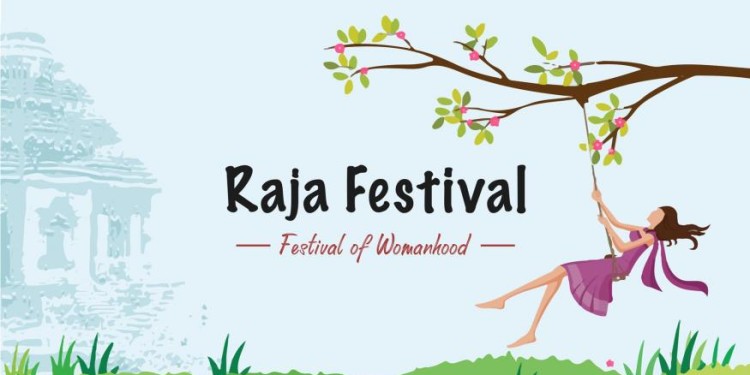In news
The Prime Minister has greeted the people of Odisha on the special festival of Raja Parba which is observed from June 15th to 18.
About Raja Parba festival
- Also called as Mithuna Sankranti, it’s a three-day-long festival of womanhood celebrated in Odisha
- The second day of the festival signifies beginning of the solar month of Mithuna from, which the season of rains start
- On this day, unmarried girls wear new dresses, play cards and make merry
- During this period, it is believed that Mother Earth menstruates first three days and prepares herself for future agricultural activities with the arrival of monsoon
- The people of Odisha don’t do any kind of agricultural activity like ploughing or sowing as it is believed mother earth goes through rejuvenation.
- Four days and their names:
- The first day is called Pahili Raja.
- The second day is Mithuna Sankranti.
- The third day is Bhudaaha or Basi Raja.
- The fourth day is called Vasumati gadhua/snana(ceremonial bath of Bhudevi), in which ladies bathe the grinding stone as a symbol of Bhumi with turmeric paste and adore on flower sindoor etc.
- The term Raja has come from Rajaswala (meaning a menstruating woman) and during the medieval period the festival became more popular as an agricultural holiday remarking the worship of Bhudevi, who is the wife of Lord Jagannath
- During the three days, women are given a break from household work and time to play indoor games.
- Girls adorn traditional saree and apply alatha on foot. All people abstain from walking barefoot on the earth.
Pitha on Wheels
- Mithuna Sankranti festival is synonymous with varieties of cakes (pithas).
- Keeping this in view, Odisha Tourism Development Corporation (OTDC) launched a special programme named ‘Pitha on Wheels’.
- During this festival, Pitha on wheels will reach every house in Bhubaneswar.
- Different kinds of pithas such as ‘Poda Pitha’, ‘Manda’, ‘Kakara’, ‘Arisha’, ‘Chakuli’ and ‘Chandrakala’ have been made available on ‘Pitha on Wheels’ (kiosks on wheels).
- These vehicles selling traditional cakes have been stationed in Bhubaneswar, Cuttack and Sambalpur.
Source: The Hindu














